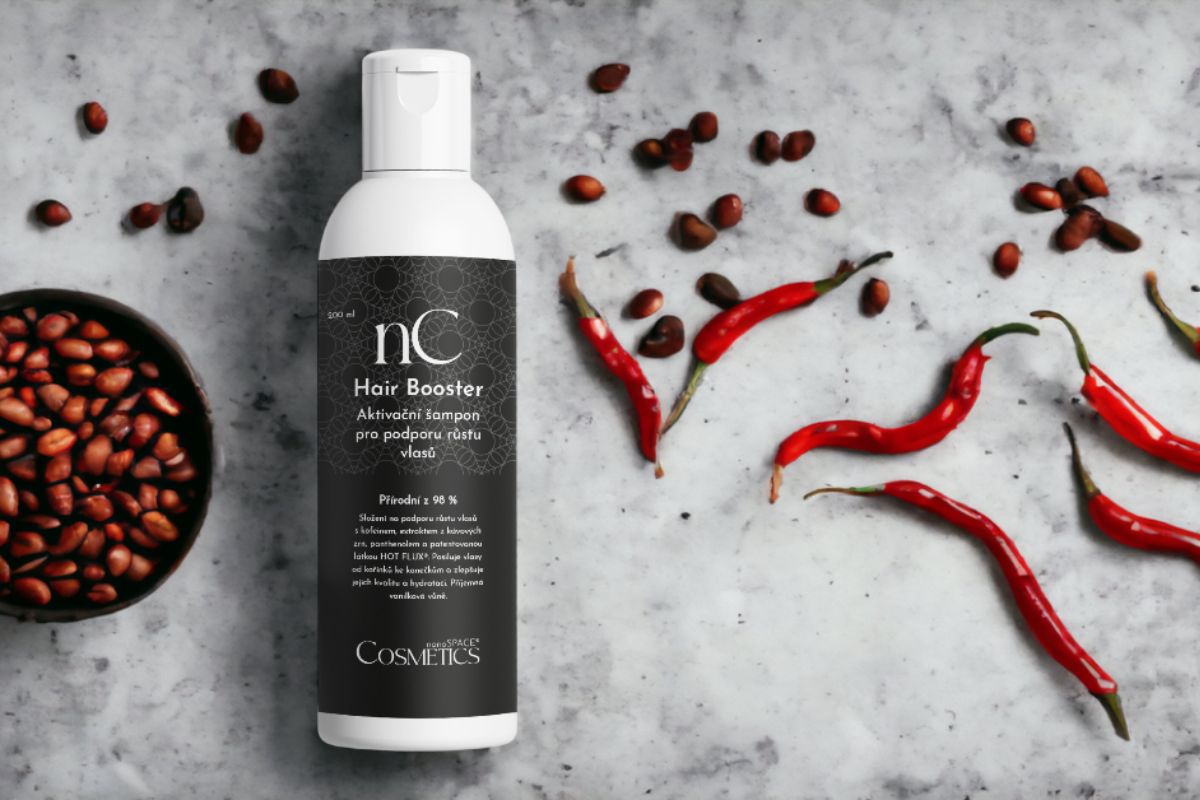Normally, we lose 50 to 100 hairs per day, but if you feel like you're losing more than usual, you should take notice. When you're losing more hair than usual, it can signal not only improper hair care but also hereditary or chronic conditions, hormonal changes, or excessive stress. Let's take a look at why hair loss most commonly occurs and what helps against hair loss. We'll discuss what dietary supplements for hair can help combat hair loss and how to choose the best shampoo to prevent hair loss.
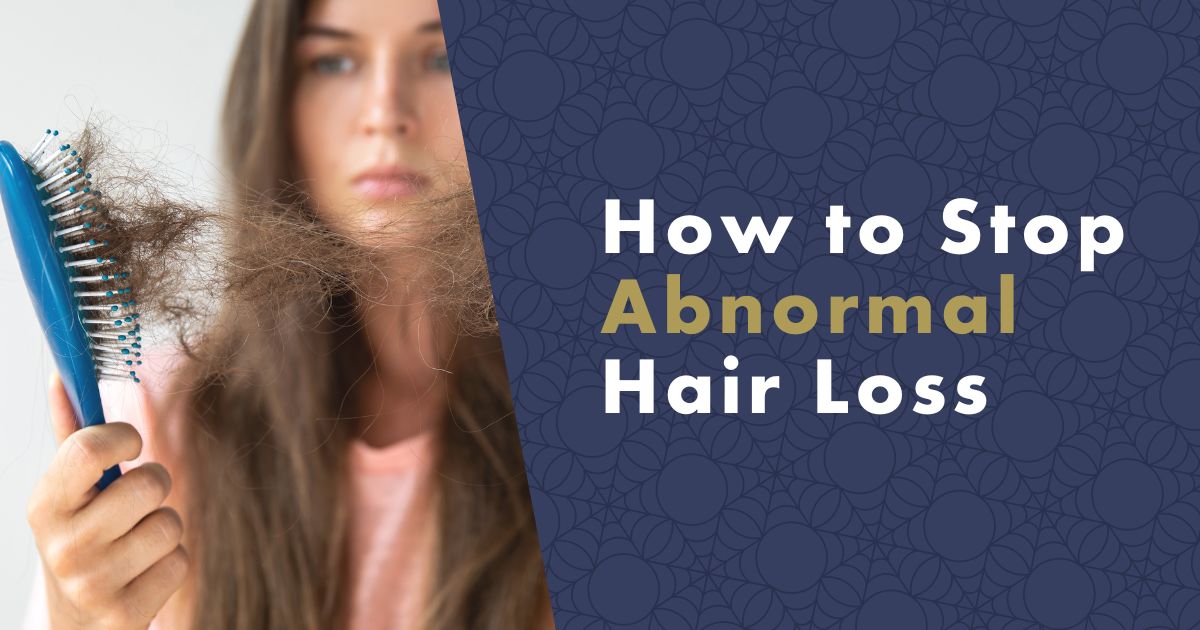
Why Does Hair Fall Out?
According to scientific studies and expert articles, there can be several main reasons for hair loss. Here is a summary of the most common ones:
-
Androgenetic Alopecia – Androgenetic alopecia, also known as male pattern baldness, is the most common form of hair loss in both men and women. Alopecia is hereditary, but that doesn't mean nothing can be done about it. According to some studies, products containing caffeine applied locally may work against alopecia. There are also special prescription medications that we will discuss below.
-
Hormonal Changes and Conditions: We all know that hair falls out after childbirth due to a drop in estrogen, but hair loss can also be caused by other hormonal changes, such as menopause or thyroid imbalance.
- Illness: Diseases such as adrenal gland disorders, diabetes, or thyroid disease can trigger hair loss.
-
Stress and Trauma: Acute stress or traumatic events, such as surgery, serious illness, or emotional stress, can lead to temporary hair loss called telogen effluvium. If you're dealing with stress, it's essential to address it promptly. You can read about it here.
-
Medications and Treatments: Some medications can cause hair loss. The most well-known is chemotherapy, but there are other drugs that can cause partial or complete hair loss. If you are taking any medications, read the package insert or consult your doctor.
-
Nutrient Deficiency: A lack of certain vitamins or minerals can lead to hair loss. For example, a deficiency in iron, biotin, zinc, or vitamin D.
-
Aggressive Hair Styling and Treatments: Frequent use of hairdryers, straighteners, or curling irons can lead to hair breakage and loss. Similarly, hair coloring, peroxide bleaching, or permanent waving can be damaging.
-
Hair Follicle Disorders: Other conditions that cause hair loss include psoriasis, which damages hair follicles.
- Poor Lifestyle and Lack of Exercise: Neglecting your health, eating unhealthy foods, and not exercising can result in hair loss.
- Smoking: Smoking affects not only our hair but also the appearance of our skin.
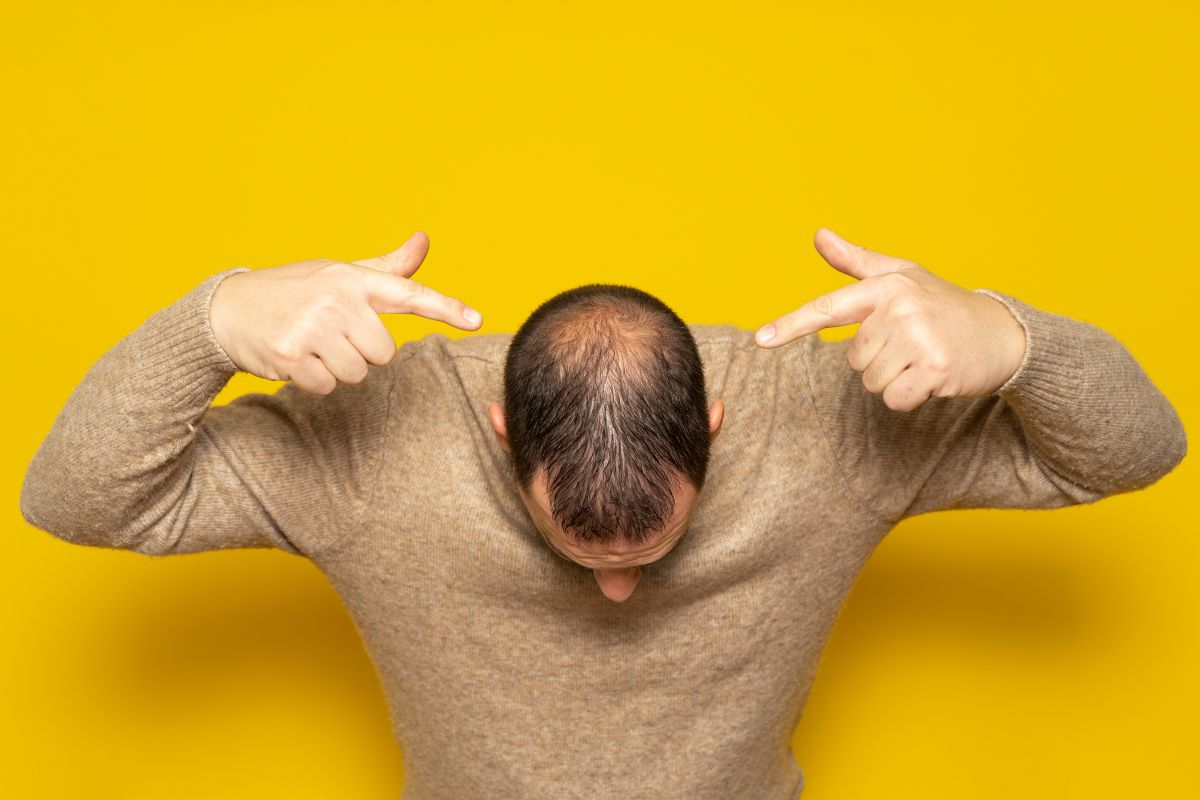
10 Tips to Prevent Hair Loss
- HotFlux®: This patented substance is mainly used in hair loss shampoos and supports the health of hair follicles. It reduces the number of cytokines that would otherwise inhibit the hair growth cycle, thereby promoting hair growth and strengthening existing hair.
-
Minoxidil: This is a prescription medication often used to treat both male and female pattern baldness. Minoxidil is available in the form of foam or solution, which is applied directly to the scalp. Research has shown that this medication can help slow down hair loss and even help some people grow new hair.
-
Finasteride: This is another prescription medication used to treat male pattern baldness. Finasteride is taken orally and works by inhibiting the production of dihydrotestosterone (DHT), which is associated with hair loss.
-
Vitamin D: Low levels of vitamin D have been linked to alopecia and other forms of hair loss. Read more about vitamin D deficiency and its causes.
-
Zinc: Just like vitamin D, a low level of zinc can be associated with hair loss. Supplementing with zinc can help stop hair loss.
-
Biotin: This vitamin B is often recommended for healthy hair and nails. Some studies have shown that biotin supplementation can improve hair health in people with a biotin deficiency. However, if you already have enough vitamin B in your diet, biotin won't help.
-
Caffeine: Studies suggest that caffeine can stimulate hair growth by prolonging the anagen (growth) phase of the hair cycle. Caffeine is often found in hair care products like shampoos or tonics.
-
Saw Palmetto: Saw Palmetto is an herb traditionally used to treat prostate problems. Some studies suggest it may also help slow hair loss by inhibiting DHT production.
- Chili: Chili peppers, specifically their active component capsaicin, are often used as a natural remedy to support hair growth and prevent hair loss.
-
Healthy lifestyle: A healthy diet, getting enough quality sleep, regular exercise and reducing stress can all contribute to overall hair health.
Tip: Try Beauty Hair Complex to supplement vitamins that impact hair loss.
When Hair Falls Out the Most
Women experience the most hair loss after childbirth and during menopause (when the body starts to lose estrogen), which is natural and nothing to worry about. Just use appropriate cosmetic products and maintain a healthy lifestyle. However, hair can also fall out during periods of stress, such as a breakup or the death of a loved one. Some hereditary and chronic diseases can also affect hair loss.
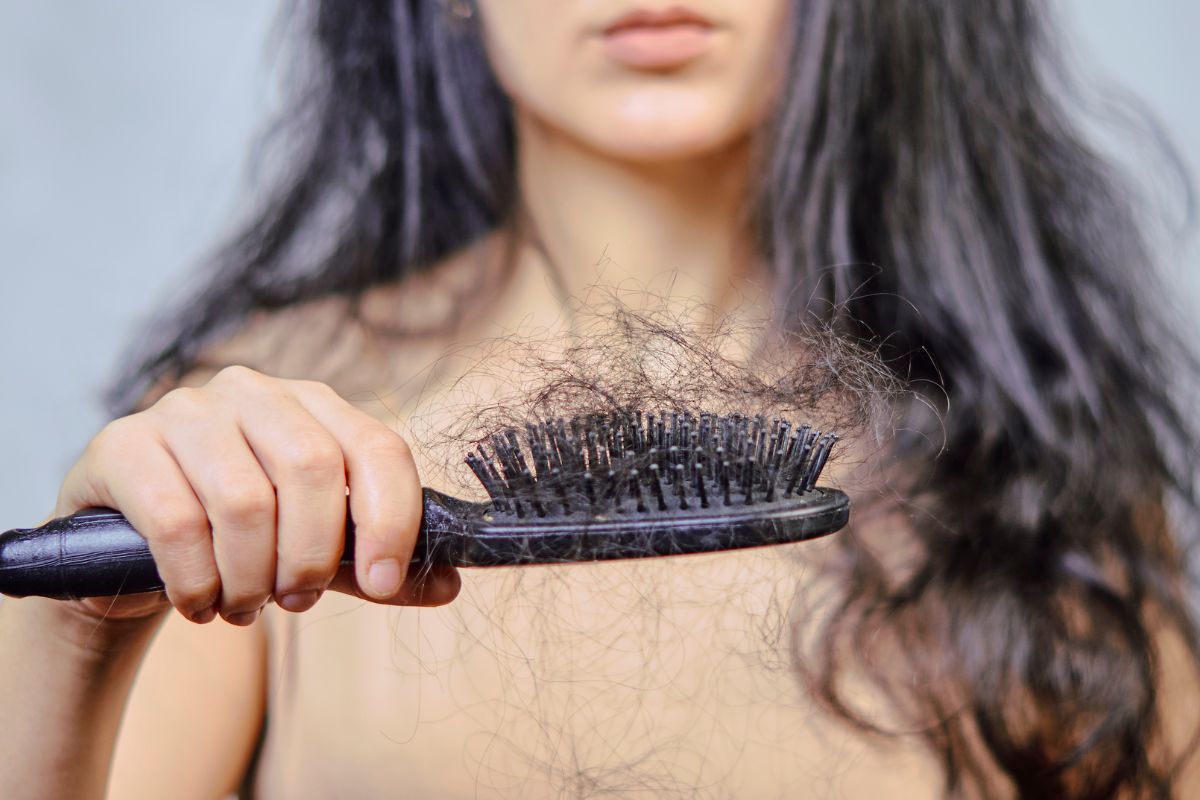
How to Choose the Best Shampoo: Which Ingredients Work Against Hair Loss
When selecting a shampoo for hair loss, you should look for several key ingredients that have been proven to help stop hair loss and promote hair growth.
HotFlux® Promotes the Growth of New Hair and Strengthens Existing Hair
HotFlux®, also known as Vanillyl Butyl Ether, is a light to colorless liquid derived at the molecular level from capsaicin, the active component of chili peppers. Compared to other warming agents, HotFlux® is safer, more effective, and gentler on the skin and hair. It promotes the growth of new hair and, more importantly, strengthens existing hair to prevent further loss.
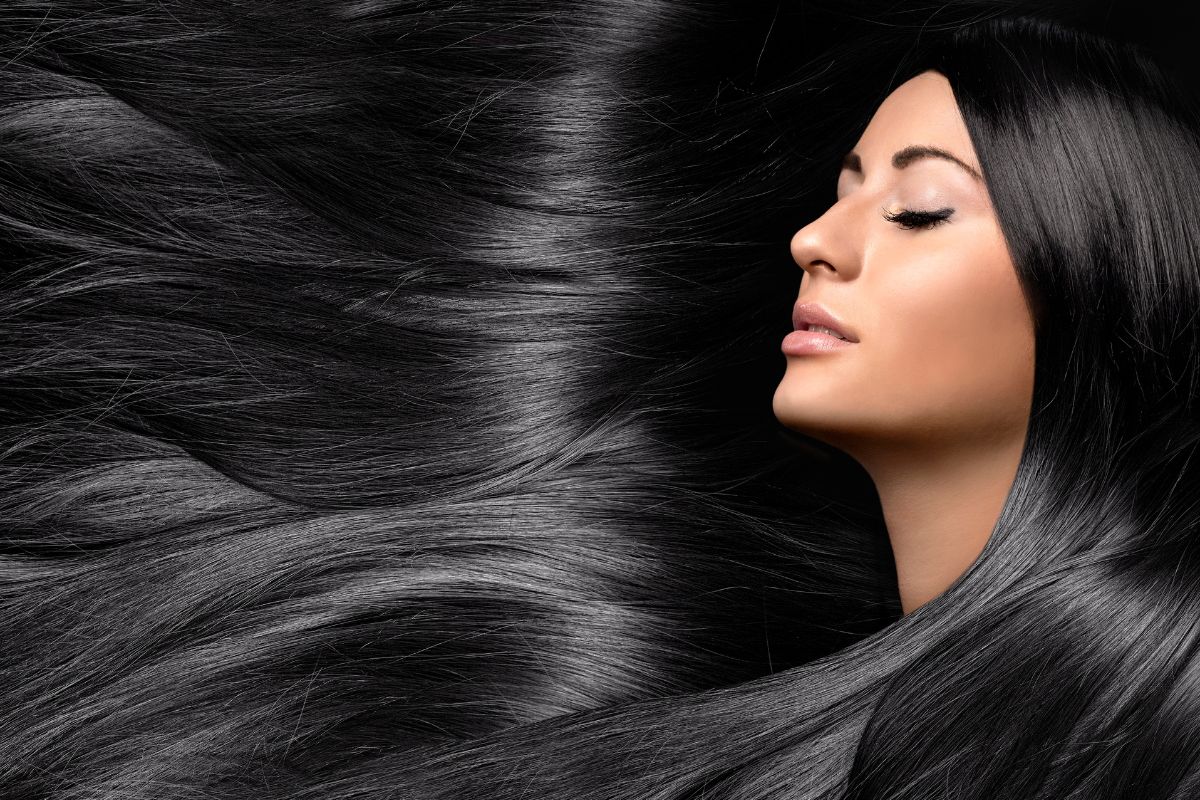
Chili Stimulates the Scalp and Blood Circulation
Capsaicin, the main active compound in chili peppers, is known for its stimulating effects. When applied to the scalp, it can create a sensation of warmth that promotes blood circulation. Increased blood flow to the hair follicles can improve the delivery of nutrients and oxygen, which are essential for hair growth and health.
Chili may also act as a natural anti-inflammatory agent. Inflammation on the scalp can lead to hair loss, so reducing it can help improve hair health. You can find kapsaicin in this hair loss shampoo, for example.
Caffeine
Caffeine is known for its stimulating effects and can increase blood flow to the scalp, enhancing the delivery of nutrients and oxygen to hair follicles. It can also block the effects of dihydrotestosterone (DHT), a hormone associated with androgenic alopecia, which is responsible for hair loss. That's why you can find it in shampoos for hair loss.
Aminexil
Aminexil is a molecule that fights against the stiffening of the collagen sheath, prolonging the lifespan of hair.
Saw Palmetto
Serenoa, also known as saw palmetto, is an herb that can inhibit the conversion of testosterone to DHT, similar to caffeine. This can help slow down or stop hair loss.
Home Remedies for Hair Loss
Try regularly massaging your scalp to improve blood circulation to the hair follicles. Massage the scalp with circular motions, starting at the hair roots on the forehead and moving towards the back of the scalp.
FAQ: Frequently Asked Questions
How long does it take for a shampoo for hair loss to start working?
Generally, it may take several weeks to months before you see any results. Results can vary depending on individual factors such as hair type, the degree of hair loss, and consistent product use.
Can shampoo alone stop hair loss?
Why does hair fall out?
Hair loss can be caused by many factors, including stress, vitamin deficiencies, genetics, or health issues such as alopecia.
What causes hair loss in women?
Hair loss in women can be caused by various factors, including genetics, hormonal changes (such as menopause), stress, vitamin deficiencies, or health problems. Women also experience hair loss after childbirth.
When do babies lose their first hair?
Babies typically start losing their first hair shortly after birth. This process is entirely normal and part of natural hair development.
When do newborns lose their hair?
Many newborns lose some or all of their hair during the first six months of life.
When do you lose hair after chemotherapy?
Hair usually starts falling out a few weeks after starting chemotherapy. This process is typically temporary, and hair should begin to regrow a few months after treatment ends.
What to do for excessive hair loss in children?
Excessive hair loss in children is not common and should be evaluated by a doctor. It can be caused by various factors, including infections, autoimmune diseases, stress, or vitamin deficiencies.
What vitamins are suitable for hair loss?
A deficiency in certain vitamins, such as vitamin D, vitamin B7 (biotin), and vitamin E, can contribute to hair loss. Supplementing these vitamins can help improve hair health in some people.
What helps with hair loss and itchy scalp?
One possible strategy is to use a caffeine shampoo. Caffeine can stimulate hair growth by prolonging the hair growth phase and increasing blood flow to hair follicles.
Sources
- PRICE, Vera H. Treatment of hair loss. New England Journal of Medicine, 1999, 341.13: 964-973.
- SHAPIRO, Jerry. Hair loss in women. New England Journal of Medicine, 2007, 357.16: 1620-1630.
- GORDON, Katherine A.; TOSTI, Antonella. Alopecia: evaluation and treatment. Clinical, cosmetic and investigational dermatology, 2011, 101-106
- VISCONTI, Michael J.; HAIDARI, Wasim; FELDMAN, Steven R. Therapeutic use of caffeine in dermatology: A literature review. Journal of Dermatology and Dermatologic Surgery, 2020, 24.1: 18-24.
- BANSAL, Manish, et al. Role of caffeine in the management of androgenetic alopecia. Int J Trichology, 2012, 4.3: 185-186.
- KIM, Sehyun, et al. Efficacy of caffeine in promoting hair growth by enhancing intracellular activity of hair follicles. Korean Journal of Cosmetic Science, 2019, 1.1: 11-18.


